#A Rage In Harlem
Photo
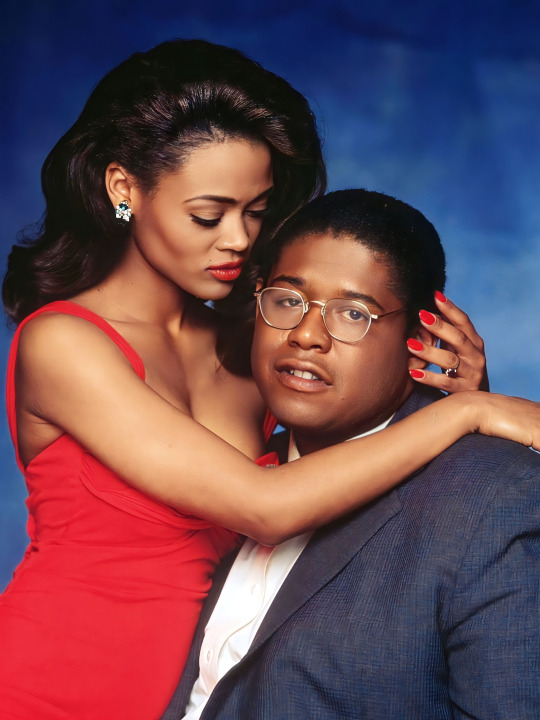



Robin Givens photographed by Richard Blanshard with Forest Whitaker, her co-star, in the film “A Rage in Harlem”, directed by Bill Duke (1991).
938 notes
·
View notes
Photo
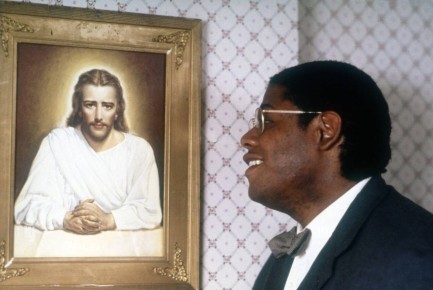
(via Pulp International - Japanese poster for period drama A Rage in Harlem)
16 notes
·
View notes
Photo

Robin Givens attending the premiere of "A Rage in Harlem" at the Cannes Film Festival in France (1991).
#robin givens#actress#black actress#a rage in harlem#film#black film#cannes film festival#1991#black woman#black women#black girls#african american#african american women#black beauty#black culture#brown skinned#beautiful#gorgeous#90s#90s actresses#retro#throwback#vintage#photo#sbrown82
192 notes
·
View notes
Photo
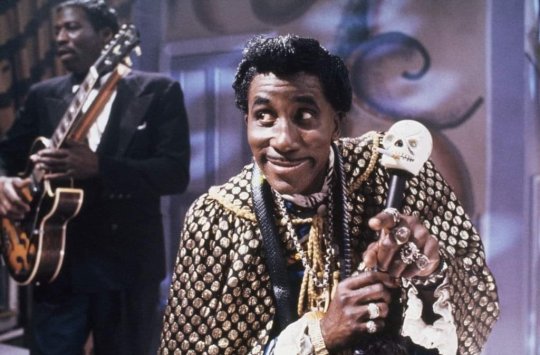
Screamin’ Jay Hawkins in ‘A Rage in Harlem’ (1991)
112 notes
·
View notes
Text
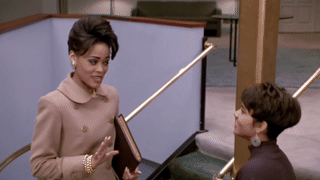
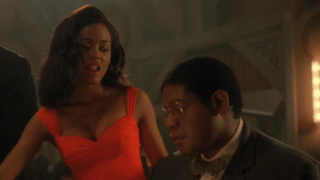
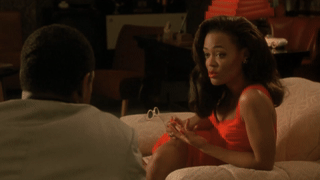
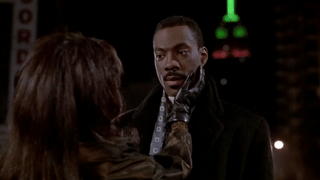
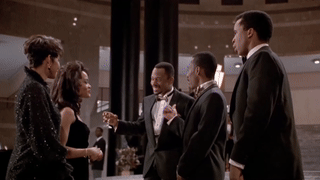

♐ November 27th: Actress, Robin Givens.
#birthdays#sagittarius#fire signs#robin givens#media#a rage in harlem#boomerang#halle berry#forest whitaker#eddie murphy#danny glover
3 notes
·
View notes
Text
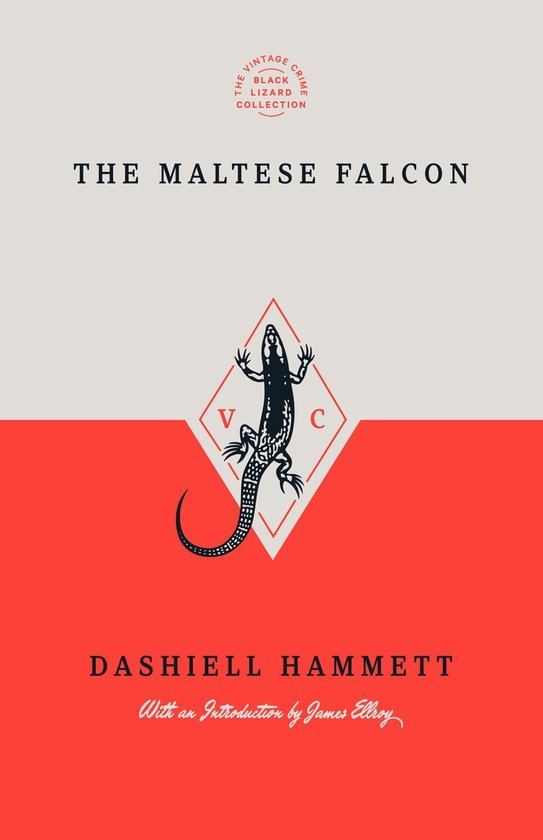
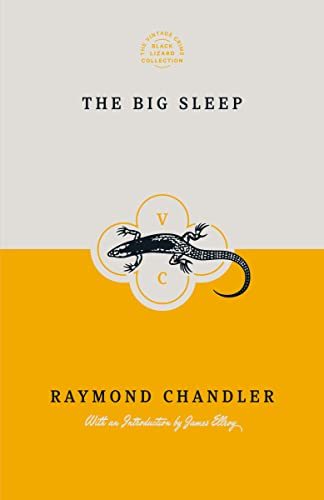

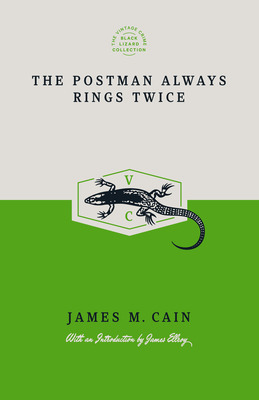
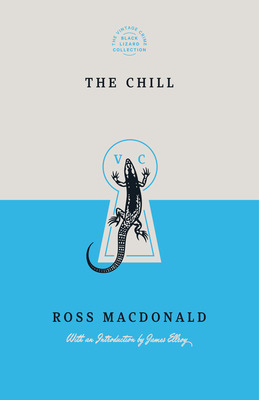
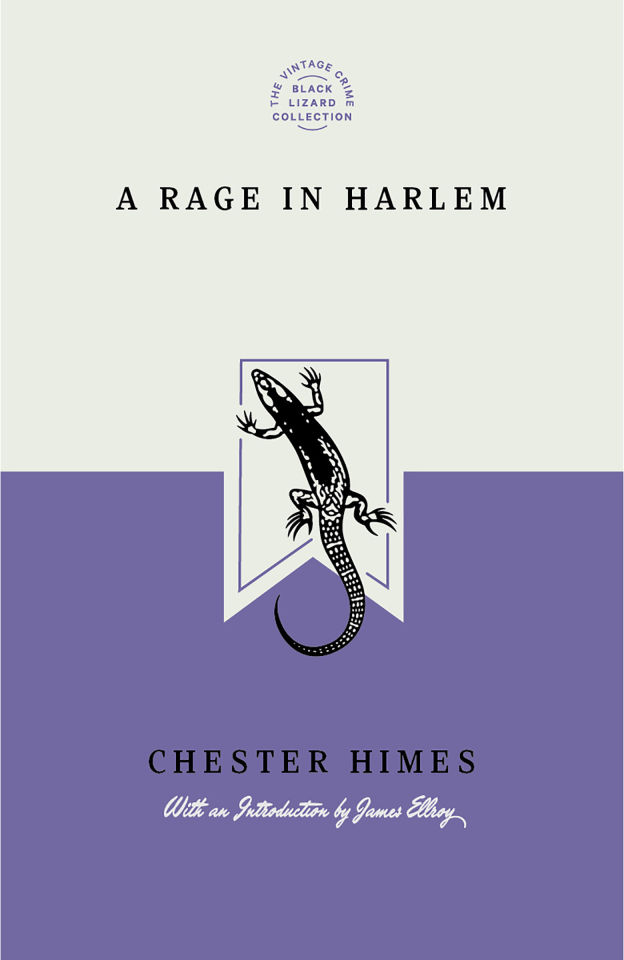

Vintage Crime/Black Lizard Limited Edition Books
Featuring Introductions by James Ellroy
#vintage crime/black lizard#vintage crime#black lizard#vintage crime books#black lizard books#the maltese falcon#the big sleep#out#the postman always rings twice#the chill#a rage in harlem#a judgment in stone#dashiell hammett#raymond chandler#natsuo kirino#james m. cain#ross macdonald#chester himes#ruth rendell#james ellroy#sam spade#philip marlowe#lew archer#crime#crime fiction#books#noir#mystery#detective#crime books
0 notes
Text
Which director's filmography would you rather listen to a series of podcasts about?
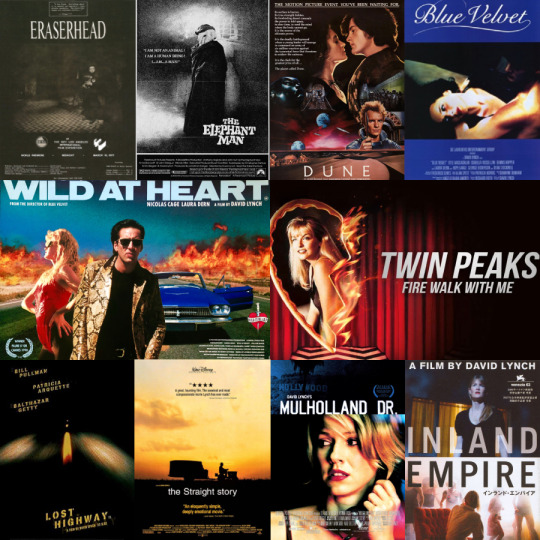
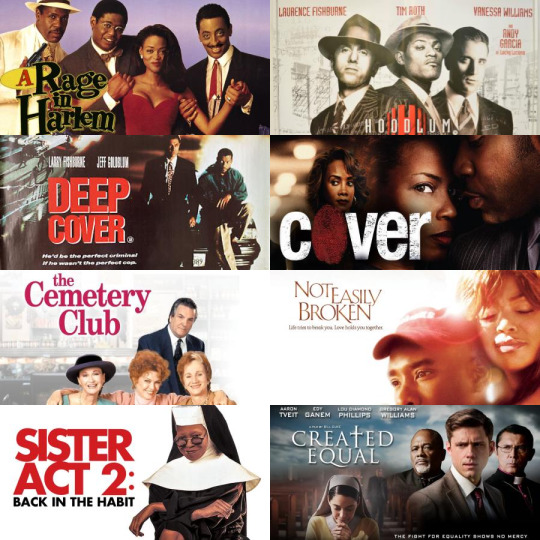
Consider also voting on the actual poll at Blank Check’s website
Current standings
#Blank Check#blank check with griffin and david#David Lynch#Bill Duke#film#filmography#director#eraserhead#Deep Cover#Sister Act 2#Blue Velvet#twin peaks fire walk with me#Mulholland Drive#A Rage in Harlem#Not Easily Broken#tumblr polls
0 notes
Text
Brothers-American Drama // James Weldon Johnson
(THE MOB SPEAKS:)
See! There he stands; not brave, but with an air
Of sullen stupor. Mark him well! Is he
Not more like brute than man? Look in his eye!
No light is there; none, save the glint that shines
In the now glaring, and now shifting orbs
Of some wild animal caught in the hunter’s trap.
How came this beast in human shape and form?
Speak man!—We call you man because you wear
His shape—How are you thus? Are you not from
That docile, child-like, tender-hearted race
Which we have known three centuries? Not from
That more than faithful race which through three wars
Fed our dear wives and nursed our helpless babes
Without a single breach of trust? Speak out!
(THE VICTIM SPEAKS:)
I am, and am not.
(THE MOB SPEAKS AGAIN:)
Then who, why are you?
(THE VICTIM SPEAKS AGAIN:)
I am a thing not new, I am as old
As human nature. I am that which lurks,
Ready to spring whenever a bar is loosed;
The ancient trait which fights incessantly
Against restraint, balks at the upward climb;
The weight forever seeking to obey
The law of downward pull—and I am more:
The bitter fruit am I of planted seed;
The resultant, the inevitable end
Of evil forces and the powers of wrong.
Lessons in degradation, taught and learned,
The memories of cruel sights and deeds,
The pent-up bitterness, the unspent hate
Filtered through fifteen generations have
Sprung up and found in me sporadic life.
In me the muttered curse of dying men,
On me the stain of conquered women, and
Consuming me the fearful fires of lust,
Lit long ago, by other hands than mine.
In me the down-crushed spirit, the hurled-back prayers
Of wretches now long dead—their dire bequests.
In me the echo of the stifled cry
Of children for their battered mothers’ breasts.
I claim no race, no race claims me; I am
No more than human dregs; degenerate;
The monstrous offspring of the monster, Sin;
I am—just what I am. . . . The race that fed
Your wives and nursed your babes would do the same
Today. But I—
(THE MOB CONCLUDES:)
Enough, the brute must die!
Quick! Chain him to that oak! It will resist
The fire much longer than this slender pine.
Now bring the fuel! Pile it round him! Wait!
Pile not so fast or high! or we shall lose
The agony and terror in his face.
And now the torch! Good fuel that! the flames
Already leap head-high. Ha! hear that shriek!
And there’s another! wilder than the first.
Fetch water! Water! Pour a little on
The fire, lest it should burn too fast. Hold so!
Now let it slowly blaze again. See there!
He squirms! He groans! His eyes bulge wildly out,
Searching around in vain appeal for help!
Another shriek, the last! Watch how the flesh
Grows crisp and hangs till, turned to ash, it sifts
Down through the coils of chain that hold erect
The ghastly frame against the bark-scorched tree.
Stop! to each man no more than one man’s share.
You take that bone, and you this tooth; the chain,
Let us divide its links; this skull, of course,
In fair division, to the leader comes.
And now his fiendish crime has been avenged;
Let us back to our wives and children—say,
What did he mean by those last muttered words,
“Brothers in spirit, brothers in deed are we”?
#poetry#James Weldon Johnson#Black America#Harlem Renaissance#American racism#brothers#mob rule#slavery#poems of protest#poems of rage
0 notes
Text
free online james baldwin stories, essays, videos, and other resources
**edit
James baldwin online archive with his articles and photo archives.
---NOVELS---
Giovanni's room"When David meets the sensual Giovanni in a bohemian bar, he is swept into a passionate love affair. But his girlfriend's return to Paris destroys everything. Unable to admit to the truth, David pretends the liaison never happened - while Giovanni's life descends into tragedy. This book introduces love's fascinating possibilities and extremities."
Go Tell It On The Mountain"(...)Baldwin's first major work, a semi-autobiographical novel that has established itself as an American classic. With lyrical precision, psychological directness, resonating symbolic power, and a rage that is at once unrelenting and compassionate, Baldwin chronicles a fourteen-year-old boy's discovery of the terms of his identity as the stepson of the minister of a storefront Pentecostal church in Harlem one Saturday in March of 1935. Baldwin's rendering of his protagonist's spiritual, sexual, and moral struggle of self-invention opened new possibilities in the American language and in the way Americans understand themselves."
+bonus: film adaptation on youtube. (if you’re a giancarlo esposito fan, you’ll be delighted to see him in an early preacher role)
Another Country and Going to Meet the Man Another country: "James Baldwin's masterly story of desire, hatred and violence opens with the unforgettable character of Rufus Scott, a scavenging Harlem jazz musician adrift in New York. Self-destructive, bad and brilliant, he draws us into a Bohemian underworld pulsing with heat, music and sex, where desperate and dangerous characters betray, love and test each other to the limit." Going to meet the Man: " collection of eight short stories by American writer James Baldwin. The book, dedicated "for Beauford Delaney", covers many topics related to anti-Black racism in American society, as well as African-American–Jewish relations, childhood, the creative process, criminal justice, drug addiction, family relationships, jazz, lynching, sexuality, and white supremacy."
Just Above My Head"Here, in a monumental saga of love and rage, Baldwin goes back to Harlem, to the church of his groundbreaking novel Go Tell It on the Mountain, to the homosexual passion of Giovanni's Room, and to the political fire that enflames his nonfiction work. Here, too, the story of gospel singer Arthur Hall and his family becomes both a journey into another country of the soul and senses--and a living contemporary history of black struggle in this land."
If Beale Street Could Talk"Told through the eyes of Tish, a nineteen-year-old girl, in love with Fonny, a young sculptor who is the father of her child, Baldwin's story mixes the sweet and the sad. Tish and Fonny have pledged to get married, but Fonny is falsely accused of a terrible crime and imprisoned. Their families set out to clear his name, and as they face an uncertain future, the young lovers experience a kaleidoscope of emotions-affection, despair, and hope. In a love story that evokes the blues, where passion and sadness are inevitably intertwined, Baldwin has created two characters so alive and profoundly realized that they are unforgettably ingrained in the American psyche."
also has a film adaptation by moonlight's barry jenkins
Tell Me How Long the Train's been gone At the height of his theatrical career, the actor Leo Proudhammer is nearly felled by a heart attack. As he hovers between life and death, Baldwin shows the choices that have made him enviably famous and terrifyingly vulnerable. For between Leo's childhood on the streets of Harlem and his arrival into the intoxicating world of the theater lies a wilderness of desire and loss, shame and rage. An adored older brother vanishes into prison. There are love affairs with a white woman and a younger black man, each of whom will make irresistible claims on Leo's loyalty.
---ESSAYS---
Baldwin essay collection. Including most famously: notes of a native son, nobody knows my name, the fire next time, no name in the street, the devil finds work- baldwin on film
--DOCUMENTARIES--
Take this hammer, a tour of san Francisco.
Meeting the man
--DEBATES:--
Debate with Malcolm x, 1963 ( on integration, the nation of islam, and other topics. )
Debate with William Buckley, 1965. ( historic debate in america. )
Heavily moderated debate with Malcolm x, Charles Eric Lincoln, and Samuel Schyle 1961. (Primarily Malcolm X's debate on behalf of the nation of islam, with Baldwin giving occassional inputs.)
----
apart from themes obvious in the book's descriptions, a general heads up for themes of incest and sexual assault throughout his works.
#james baldwin#motivated by i think people here think it's harder to find resources and read than it actually is. so much stuff online!#motivation nr 2 wtf
9K notes
·
View notes
Text
Man dies weeks after dozens of bikers beat him during road rage attack in NYC: cops
Man dies weeks after dozens of bikers beat him during road rage attack in NYC: cops
A 45-year-old man died two weeks after he was brutally beaten by more than two dozen ATV and dirt bike riders during a Harlem road rage incident, cops said Wednesday.
Arthur Cooke was driving east on East 125th Street near Fifth Avenue just after 10 p.m. Nov. 4 when about 30 ATV and dirt bike riders surrounded him, authorities said.
One of the bikers struck the passenger-side mirror of Cooke’s…
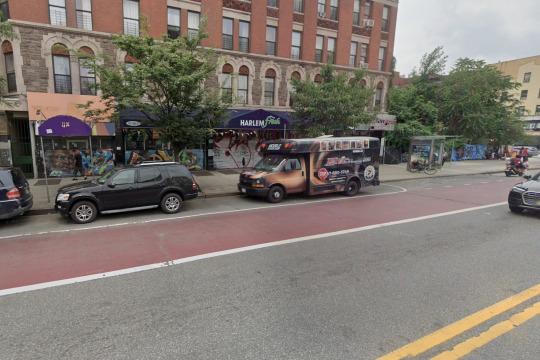
View On WordPress
0 notes
Text
Current reading is Harlem Shadows, the landmark 1922 poetry collection by the Jamaican-American author Claude McKay (1890-1948). To breathe new life into traditional forms like the sonnet, at a time when Modernism and free verse were overwhelmingly dominant, is impressive. To write of intense emotions--alienation, grief, rage--in a beautiful way is no less impressive. To do both at once is astonishing, and that is what McKay did. His work is an undying cri de coeur against racial injustice in both his native and his adopted countries, and it stands as one of the crowning achievements of the Harlem Renaissance.
#personal#current reading#poetry#literature#Claude McKay#African-American poetry#African-American literature#Black poetry#Black literature#Harlem Renaissance
16 notes
·
View notes
Text
Heavy is the head..
Halloween, 2023. He hadn't dressed up, though he was sure that Gabe and Ash would tease him endlessly about it. The chill of the night called for his usual denim and fur-lined jacket. Something about the night and the invitation alone made him suspicious - but there was nothing concrete he could point to bring it up to his higher ups that could lead them to pulling out. So the night (the show) had to go on.
He should have expected how the night ended. The body of their queen hitting the floor, then being carted away. Shock and rage surged through his body, and he immediately turned away from the scene to go find the two men he knew he could talk to.
As much as he wanted to be king, he wanted to be the one wielding the knife - give Andrea a good death, let her know that he admired her for the time she'd been there.
A plan was formulating, though. And he spilled a bit of it to the friends who would stay by his side, fully loyal to his lofty dreams of making the Cartel a force to be reckoned with.
-
They were leaderless. And would continue to be. It would sow chaos, let them see who weren't quite as loyal to them as they should be, let them see who wanted the top spots for themselves. With his birthright within reach, he stood back and simply watched. In the time that they were without someone to look to for guidance - he started making his moves.
Ash was the first.
"I know I have you." He'd said. There was never going to be any doubt. "But I need your eyes. Double time, recruit a handful'a people y'trust. Encourage 'em to act up."
-
The next was more politics than Felix cared for. He needed people with authority and rank in his pocket - not just people who could pull seniority. With most of his time and life spent in Harlem and around Washington Heights, that was his focus. The region manager there was a good bet, at least.
"If I'm at the top -" He will be, with or without their help. " - You'll get more power." Everyone here wants it, it eats at them. It tears them apart from the inside. "Power means money funneled through y'neighborhoods." He slid over some of their product - provided for this specific purpose by Gabe. It's good quality, but Felix doesn't partake. He watched the manager dip their finger into the powder and rub it along their gums to assess it.
"Whatever focus we need to pull from th' others to get what y'need, it'll happen. Y'need more guns to protect your guys on the street? Done. Y'need pay increase? Protection for your family?" He leaned close on that, eyes narrowing. It's a thinly veiled threat, but they both know the game.
In the end, he has the region completely under his thumb with promises of the future.
-
After that it was under the table deals, exchanging promises and money while keeping an eye on key players who were also making moves. With all the information being fed to him, he knew he had enough fuel to confront a handful of others. It wasn't his favorite thing to do - but it was needed.
"Y'know." Felix hadn't shrugged off his jacket, standing in front of the man lounging on his couch. He'd invited him over for dinner, to discuss logistics. "You've been pullin' in some good money for us." He smiles, cheeks stretching a bit too wide. The fucker in front of him is chum in the water, too comfortable.
"But, uh." He pulls the toothpick from between his teeth, flicking it into a nearby trashcan. "Heard ya been skimmin' a bit off the top. Keepin' it for y'self." The man tried to deny it, but Felix interrupts. "Now, this don't gotta be too painful, I just need you make a few promises to me in exchange for y'keepin' your livelihood - we can negotiate."
The man seemed to have other ideas, though. The gun is pulled from his belt, and Felix doesn't give him time to pull the trigger before he grabs at it, and wrenches it from the man's hands. A shot goes off - hits neither of them (thank fuckin' god) - and in a quick flurry, Felix is able to unload it and instead of throwing it to the side, he uses it as a blunt weapon and brings it down repeatedly onto the man's head until he's left bloody and shredded. Still alive, but wheezing through blood bubbling at this lips.
"Y'see. I was--" He stands and heaves out a breath, brushing a bloody hand through his hair to get it out of his face. "I was gonna give you a chance. Just a fuckin' chance. Now - y'got this hangin' over your head." He holds the gun up - soaked with the man's blood. "All I was gonna ask was for y'loyalty. Now look - you're all fucked up." He crouches down and pats the shredded bits of his face. "You're gonna come callin' when I ask, y'know. Like a lil fuckin' lost puppy w' it's tail between its legs. And you're gonna do exactly what I fuckin' say or all of this? Ends with you dyin'. And between you 'n me? It ain't gonna be fast. I'm gonna drag it out 'til you're beggin' for me to end it. Y'get me?"
He'd agreed, in the end. And Felix had taken him to the medic, gotten him looked after - disfigured as he might be after.
-
New Year's Eve. Nothing happens, but he starts to hear and see signs of people acting out. Going off on their own, doing shit that - if he were in charge - would be looked down on and quickly put an end to. It's all shit that he's allowing to happen. Shit he's keeping in his back pocket.
-
The end of January is fast approaching, and Felix knows that if he lets it go for too long - there will be nothing left to take control of. So he calls a meeting at the warehouse. Those under his thumb know it's time to collect on what he's been asking of them for months.
There's no voting here, no one to appoint him - it's just him stepping up to the plate and telling them that he's the boss now. Plays it all friendly, plays it like it's what they need - shows them examples of shit that's going on without someone to ground them, bring them all together.
He asks if anyone has any objections, and there are murmurs - discussion of what to do with Felix. With the work he's done and the people he's got under his thumb, in his pockets, they don't do anything but speak his praises. He makes a show of accepting it graciously - telling them that all he's wanted to do was make the Cartel something to be proud of, to live up to his cousin's legacy. He mentions Andrea, spins some sob story for the people who were loyal to her. It's all rehearsed, and he plays his part on the stage well.
It's all going according to plan.
Even when someone finally speaks up - "We don't need no fucking leaders, man."
Felix's head snaps up, feigning surprise. "Yeah? Y'think we're doing just great? Fading away into nothingness - letting the fuckin' Brotherhood start to get a leg up on us?"
"Nah, we're finally fucking doing what we want." The person stands up, and Felix has to fight the urge to grin. How very fucking predictable.
"Seems to me like you're already doin' that, my friend." Felix starts, and plucks his phone out of his pocket. There's some video courtesy of Ash and he turns the volume up - plays it as loud as possible. It's a recording of the person in question meeting up with a lower rank Cartel member ( they've already been taken care of, made to look like an accident - some turf war gone wrong ) - there's talks of defecting, of ridding the city of the Cartel from the inside out. It's damning. The person blanches.
"If y'ask me, I'd say that warrants a punishment. What are we doing about that? Open to suggestions." It's an open floor, and he wants to hear. There's more murmuring, and he gives them a minute or so to talk it over. No one provides a concrete answer. He heaves a sigh, and then as if he's taking care of some task that he really doesn't want to do - taking out the trash, cleaning the dishes - he draws his weapon and fires three times. Two in the chest, one in the head.
"As I was saying, we need strength at the top. None of you willin' to do what needs to be done proves y'all need me. Right?" Murmurs of agreement. "All in agreement, Felix Secada as your new leader of The Cortázar Cartel? Say aye."
Resounding ayes, and Felix finds himself grinning - unable to help it. "Spread the word, then. If y'all need to talk, wanna shift ranks - come find me. We'll figure somethin' out."
-
Long after everyone else has left the warehouse, Felix remains, staring at the blood stained concrete. He laughs, bringing his hand to his forehead. Years. It had taken fucking years and now he wore the crown.
Laughter rings out, echoing through the room. He fuckin' won.
#self para#boss era???#drugs tw /#blood tw /#guns tw /#murder tw /#i think i got everything - lemme know if there's anything else <3
17 notes
·
View notes
Text
Todays rip: 19/01/2024
Fragile Snowman (Remastered)
Season 3
Featured on: Inspector Gunner 2 With Critic
Ripped by MtH, IAmMelloYello, Chaze the Chat
youtube
Following up directly on yesterday's post, one of the most notable events that happened during Season 3, one that was covered with a lot of love by the SiIvaGunner team in MAGFest 2019: SiIvaGunner Presents - High Quality Ripping, was the Nostalgia Critic takeover. Somehow, despite running the blog for half a year's time at this point, I still haven't ever gotten to touch on this event, despite being one of the more fondly remembered parts of the Season. And, well, there IS kind of a reason for that?
See, what initially started as an event celebrating old YouTube reviewers in general (hence Inspector Gadget's presence during it and in the album), transitioned into a purely-Nostalgia Critic event - but rather than celebrating Doug Walker's legacy in particular, the takeover took a different approach. Playing on Walker's gimmick as a reviewer in particular, the event was focused specifically on being a "nostalgia"-event - in other words, aiming to specifically bring us in the audience back to the days of Season 1 through every rip uploaded. This theme wasn't quite as...immediately apparent as many other takeovers, be it with rips like Totally Shaaking Out Right Now in the Harlem Shakeover, or Fell From a High Place (Reprise) during the Minecraft music event. Because while those events pretty radically changed to a core theme, this nostalgia-themed event instead saw the channel return to a status quo it once had - reuploads of several prior-lost Season 1 rips, new rips that were intentionally simplistic and often off-key, and an overall focus on the kinds of jokes that were all the rage in Season 1.
It was a genuinely really fun time, yet it was simultaneously hard to think of a fitting rip to represent it all with - in my eyes, it's one of those events that only truly worked in the moment, surrounded by all these rips that formed a cohesive whole. But Fragile Snowman (Remastered) is as close as it gets, I think - a loving remake of a true classic of Season 1. I've talked before of just how much I love it when rips of all sorts get dug back up for another shot at live with Violet Snow Memories from earlier this year, and this event was really the first time that we ever got a concentrated dose of that feeling throughout an entire takeover - and despite the rip of today's post only being two years old at that point, the nostalgia for it had already set in for me.
As described by Chaze the Chat in the aforementioned MAGFest panel, a big part of the fun with Season 1 was its sense of...spontaneousness, that you never really knew what to expect due to there simply not being much of any expectations set up by prior channel history in the first place. And as a result, we got a lot of rips much like the original Fragile Snowman - a mashup between Snowman as featured in Super Smash Bros. Brawl and Fragile by Tech N9ne. There's a lot of rips like this even today, mashing up more chill video game music with hip-hop music that doesn't necessarily have much memetic quality, and while a lot of them can slip through the cracks of the SiIvaGunner audience, Fragile Snowman really did stick - enough to warrant two remasters made of it, with Fragile Snowman (Remastered) being the final stop the rip's made thus far.
There's so many small things fixed and tweaked in this final remastered version, yet it still sounds exactly as you'd imagine a mashup between the two songs to sound - which is, really, the best tell for it being an excellent remaster. The Nostalgia Critic takeover, while less bombastic and loud than many other events, was one that most every SiIvaGunner fan loved specifically because it focused on something we were ALL fans of - SiIvaGunner itself - and reminded us of just how far we'd come in just two short years. All these years later, there was indeed another event somewhat similar to this Nostalgia Critic takeover that happened just recently in Season 7, but...that's a story for another time.
#todays siivagunner#season 3#siivagunner#siiva#mth#chaze the chat#iammelloyello#Youtube#Bandcamp#mother#mother 2#earthbound#ness earthbound#mother 3#mother series#lucas mother 3#snowman#snes music#super smash bros brawl#ssbb#smash bros brawl
10 notes
·
View notes
Text
List of which songs are included on each Polka under the cut
Polkas on 45: "Jocko Homo" by Devo, "Smoke on the Water" by Deep Purple, "Sex (I'm a …)" by Berlin, "Hey Jude" by The Beatles, "L.A. Woman" by the Doors, "In-A-Gadda-Da-Vida" by Iron Butterfly, "Hey Joe" by Jimi Hendrix, "Burning Down the House" by Talking Heads, "Hot Blooded" by Foreigner, "Every Breath You Take" by The Police, "Should I Stay or Should I Go" by the Clash, "Jumpin' Jack Flash" by the Rolling Stones, "My Generation" by the Who
Hooked on Polkas: "Twelfth Street Rag" by Euday L. Bowman, "State of Shock" by The Jacksons and Mick Jagger, "Sharp Dressed Man" by ZZ Top, "What's Love Got to Do with It" by Tina Turner, "Method of Modern Love" by Hall & Oates, "Owner of a Lonely Heart" by Yes, "We're Not Gonna Take It" by Twisted Sister, "99 Luftballons" by Nena, "Footloose" by Kenny Loggins, "The Reflex" by Duran Duran, "Bang Your Head (Metal Health)" by Quiet Riot, "Relax" by Frankie Goes to Hollywood
Polka Party!: "Sledgehammer" by Peter Gabriel, "Sussudio" by Phil Collins, "Party All the Time" by Eddie Murphy, "Say You, Say Me" by Lionel Richie, "Freeway of Love" by Aretha Franklin, "What You Need" by INXS, "Harlem Shuffle" by The Rolling Stones, "Venus" by Bananarama, "Nasty" by Janet Jackson, "Rock Me Amadeus" by Falco, "Shout" by Tears for Fears, "Papa Don't Preach" by Madonna
The Hot Rocks Polka: "It's Only Rock 'n Roll (But I Like It)", "Brown Sugar", "You Can't Always Get What You Want", "Honky Tonk Women", "Under My Thumb", "Ruby Tuesday", "Miss You", "Sympathy for the Devil", "Get Off of My Cloud", "Shattered", "Let's Spend the Night Together", "(I Can't Get No) Satisfaction" - all by The Rolling Stones
Polka Your Eyes Out: "Cradle of Love" by Billy Idol, "Tom's Diner" by DNA featuring Suzanne Vega, "Love Shack" by the B-52's, "Pump Up the Jam" by Technotronic, "Losing My Religion" by R.E.M., "Unbelievable" by EMF, "Do Me!" by Bell Biv DeVoe, "Enter Sandman" by Metallica, "The Humpty Dance" by Digital Underground, "Cherry Pie" by Warrant, "Miss You Much" by Janet Jackson, "I Touch Myself" by Divinyls, "Dr. Feelgood" by Mötley Crüe, "Ice Ice Baby" by Vanilla Ice
Bohemian Polka: "Bohemian Rhapsody" by Queen
The Alternative Polka: "Loser" by Beck, "Sex Type Thing" by Stone Temple Pilots, "All I Wanna Do" by Sheryl Crow, "Closer" by Nine Inch Nails, "Bang and Blame" by R.E.M., "You Oughta Know" by Alanis Morissette, "Bullet with Butterfly Wings" by The Smashing Pumpkins, "My Friends" by Red Hot Chili Peppers, "I'll Stick Around" by Foo Fighters, "Black Hole Sun" by Soundgarden, "Basket Case" by Green Day
Polka Power!: "Wannabe" by the Spice Girls, "Flagpole Sitta" by Harvey Danger, "Ghetto Supastar (That Is What You Are)" by Pras featuring Ol' Dirty Bastard and Mýa, "Everybody (Backstreet's Back)" by the Backstreet Boys, "Walkin' on the Sun" by Smash Mouth, "Intergalactic" by the Beastie Boys, "Tubthumping" by Chumbawamba, "Ray of Light" by Madonna, "Push" by Matchbox Twenty, "Semi-Charmed Life" by Third Eye Blind, "The Dope Show" by Marilyn Manson, "MMMBop" by Hanson, "Sex and Candy" by Marcy Playground, "Closing Time" by Semisonic
Angry White Boy Polka: "Last Resort" by Papa Roach, "Chop Suey!" by System of a Down, "Get Free" by The Vines, "Hate to Say I Told You So" by The Hives, "Fell in Love with a Girl" by The White Stripes, "Last Nite" by The Strokes, "Down with the Sickness" by Disturbed, "Renegades of Funk" by Rage Against the Machine, "My Way" by Limp Bizkit, "Outside" by Staind, "Bawitdaba" by Kid Rock, "Youth of the Nation" by P.O.D., "The Real Slim Shady" by Eminem
Polkarama!: "Chicken Dance" by Werner Thomas, "Let's Get It Started" by Black Eyed Peas, "Take Me Out" by Franz Ferdinand, "Beverly Hills" by Weezer, "Speed of Sound" by Coldplay, "Float On" by Modest Mouse, "Feel Good Inc." by Gorillaz featuring De La Soul, "Don't Cha" by The Pussycat Dolls featuring Busta Rhymes, "Somebody Told Me" by The Killers, "Slither" by Velvet Revolver, "Candy Shop" by 50 Cent featuring Olivia, "Drop It Like It's Hot" by Snoop Dogg featuring Pharrell Williams, "Pon de Replay" by Rihanna, "Gold Digger" by Kanye West featuring Jamie Foxx
Polka Face: "Poker Face" by Lady Gaga, "Womanizer" by Britney Spears, "Right Round" by Flo Rida ft. Kesha, "Day 'n' Nite" by Kid Cudi, "Need You Now" by Lady Antebellum, "Baby" by Justin Bieber ft. Ludacris, "So What" by Pink, "I Kissed a Girl" by Katy Perry, "Fireflies" by Owl City, "Blame It" by Jamie Foxx ft. T-Pain, "Replay" by Iyaz, "Down" by Jay Sean ft. Lil Wayne, "Break Your Heart" by Taio Cruz ft. Ludacris, "Tik Tok" by Kesha
NOW That's What I Call Polka!: "Wrecking Ball" by Miley Cyrus, "Pumped Up Kicks" by Foster the People, "Best Song Ever" by One Direction, "Gangnam Style" by Psy, "Call Me Maybe" by Carly Rae Jepsen, "Scream & Shout" by will.i.am feat. Britney Spears, "Somebody That I Used to Know" by Gotye feat. Kimbra, "Timber" by Pitbull feat. Kesha, "Sexy and I Know It" by LMFAO, "Thrift Shop" by Macklemore & Ryan Lewis feat. Wanz, "Get Lucky" by Daft Punk feat. Pharrell Williams
#weird al#tunes#weird al yankovic#'weird al' yankovic#al yankovic#music#parody song#album#music poll#tumblr polls#i love polls#poll time#my polls#fandom polls#polls#polka#Polkas on 45#Hooked on Polkas#Polka Party!#The Hot Rocks Polka#Polka Your Eyes Out#Bohemian Polka#The Alternative Polka#Polka Power!#Angry White Boy Polka#Polkarama!#Polka Face#NOW That's What I Call Polka!#pop#pop music
9 notes
·
View notes
Text

“Don't ever let injustice go by unchallenged," his mother told him.
He was a rebel, a self-described “angry misfit”.
He and a friend would survive an ambush by KKK members who tried to force their vehicle off the road.
Born in Manhattan on March 1, 1927, and raised in Depression-era Harlem, he said he spent his life “in a constant state of rebellion.”
“His parents were mixed-race undocumented immigrants who constantly changed jobs, apartments and even their names to avoid authorities,” wrote Andrew R. Chow in Time Magazine. “Throughout my childhood we lived an underground life, as criminals of a sort, on the run,” [he would] write in his 2011 memoir.
Life for him as a child “was rife with hardship and sorrow, . . . His alcoholic father beat him bloody; his schoolyard years were full of fights waged with “bottles, garbage cans, rocks, hands and feet.” When he was a toddler, he accidentally cut himself in the eye with scissors, blinding himself in one eye for the rest of his life. [He] was also dyslexic, and his poor eyesight led him to drop out of school in the ninth grade, leaving him few career prospects.”
Poverty “defined” him, he wrote in his memoir.
“A day after his 17th birthday, he enlisted in the Navy and soon was disabused of romantic notions of military fellowship,” wrote Adam Bernstein of The Washington Post. “Minor infractions landed him for two weeks at the Naval Prison in Portsmouth, Va., where he saw German POWs receiving better treatment.”
“The injustice of this sickened me,” he wrote, adding that the experience “radicalized” him politically.
“Despite his service he was often turned away from segregated restaurants or concert venues.”
“The all-too-frequent incidents of prejudice kept me in an almost constant state of simmering rage,” he wrote.
When he returned, he found work as a janitor in a Harlem apartment building. A grateful tenant gave him tickets to the American Negro Theatre, where he started connecting with like-minded people. One of those, another janitor at the theater, became a life-long friend.
While looking for an acting job, he and his newlywed wife lived on her teacher’s salary in a $55-a-month apartment.
“In the meantime, he found a mentor in the African American entertainer Paul Robeson, a leading activist for civil and union rights who was hounded by federal authorities for his alleged socialist sympathies,” wrote Bernstein. Urged by Robeson, [he] began using folk songs to decry racism, poverty and other social ills.”
“In 1956, [he] decided to record an entire album of Caribbean island songs, much to the chagrin of his label, RCA, who felt it would be too “ethnic,” according to Chow. But [his album] was a runaway success: It made history as the first album to sell a million copies in the U.S., and embarked on a 99-week Billboard chart run that wouldn’t be matched until Michael Jackson’s Thriller more than a quarter-century later.”
Wrote Joshua Jelly-Schapiro of New York Magazine:
“In 1956, a Harlem-bred child of Caribbean immigrants [became] bigger than Elvis. But where Elvis built Graceland, [he] used the proceeds from [his album]” to assist a young Martin Luther King Jr. and his movement for civil rights. Along with his friend, the former janitor, Sidney Poitier, they became outspoken voices for justice and racial equality.
This Harlem-bred child of undocumented immigrants was born as Harold George Belanfanti Jr., but his parents had Americanized his name.
Harry Belafonte smashed “a series of barriers during five decades as a movie, TV and stage star, “ wrote Bernstein. “His artistic and humanitarian work frequently overlapped, reflecting his belief that ‘the role of art isn’t just to show life as it is but to show life as it should be.’”
He became “a dynamic force in the civil rights movement,” according to the New York Times.
This is a new story from the Jon S. Randal Peace page to honor the life and achievements of Harry Belafonte, who died of congestive heart failure Tuesday, April 25, at the age 96 at his New York home, according to his longtime spokesman.
The Peace Page focuses on past and present stories—some seldom told, others simply forgotten, still others intentionally ignored. The stories and chapters are gathered from writers, journalists, and historians to share awareness and foster understanding—to bring people together—and, as such, they are available all year in the Peace Page archives with new stories appearing each week throughout the year. We encourage you to learn more about the individuals and events mentioned here and to acknowledge the writers, educators, and historians whose words we present. Thank you for being here and helping us share awareness.
~~~~~
Growing up, Belafonte would refer to “my people” as “gangsters”, but clarified that by saying, “I don’t mean major American crime; I mean, as an immigrant, if you can’t find work inside the law, you find work outside the law. Running numbers and so on. Which is, of course, a characteristic of the poor, who find ways to break the rules, since the rules are always stacked against them.”
When he joined the Navy in 1944, he was hoping for adventure and glory on the Eastern front of World War II. “But the armed forces were still segregated, with African Americans often relegated to dangerous grunt work like handling live ammunition.”
When he “later enrolled in the Dramatic Workshop of the New School of Social Research,” his classmates included “Marlon Brando, Walter Matthau, Bea Arthur, Rod Steiger and Tony Curtis,” according to writer Drew Weisholtz.
When he released his history-making album “Calypso,” he said “It’s a song about my father, my uncles, the men and women who toil in the banana fields, the cane fields of Jamaica.”
"The song is a work song," he said. "It's about men who sweat all day long, and they are underpaid. They're begging for the tallyman to come and give them an honest count: 'Count the bananas that I've picked so I can be paid.' When people sing in delight and dance and love it, they don't really understand unless they study the song — that they're singing a work song that's a song of rebellion."
"When people thought he was just singing about good times in the islands, he was always like infusing messages of protest and revolution in everything he did," John Legend said.
“There had never before been any singer that popular with White middle-class audiences as well as Black audiences,” the cultural critic and scholar Henry Louis Gates Jr. said in an interview. “In that sense, he was an agent of change, the musical voice of civil rights.”
“Using music to espouse universal brotherhood, Mr. Belafonte encouraged audiences to sing along to calypso, protest and chain-gang songs, the ballad ‘Danny Boy’ and the Hebrew folk song ‘Hava Nagila’, according to The Washington Post.
“A two-time Grammy Award winner, Belafonte also won a Tony Award for best actor in a featured role in a musical for ‘John Murray Anderson’s Almanac’ in 1954,” according to Weisholtz.
“The first Black producer in television, he also won an Emmy Award in 1960 for his special ‘Tonight with Belafonte.’ In 2015, he was recognized with a Jean Hersholt Humanitarian Award at the Oscars, giving him coveted EGOT status.”
Despite his popularity, Belafonte “still met with plenty of resistance, especially as he entered previously segregated spaces,” wrote Chow. “While walking up Coldwater Canyon while filming his first Hollywood role, Bright Road, he was arrested and charged with illegal loitering. In Las Vegas, he was turned away from the resort he was playing at and instead told to stay at a dingy colored motel across town. A Chicago club’s manager initially refused to let him into his own show.”
In one famous incident, “Mr. Belafonte and White British singer Petula Clark were performing a duet of the antiwar song ‘Paths of Glory’ on an NBC special,” according to Bernstein. “An advertising manager for the automaker Chrysler-Plymouth, which was sponsoring the show, objected when Clark spontaneously touched Mr. Belafonte’s arm.
“The executive, who interrupted the song and had called for a retake, was later reprimanded by Chrysler and called Mr. Belafonte to apologize. ‘Your apology comes 100 years too late,’ the singer replied. NBC kept the scene when the show was televised. Mr. Belafonte later told an interviewer, “It is essential to television and industries to know that people like [this] exist. I’m tired and frustrated by what I’ve had to go through in this medium.”
~~~~~
“At the height of his mainstream fame, Belafonte stepped back from entertainment to devote the bulk of his time to the burgeoning Civil Rights Movement,” according to Time Magazine. “He became a key economic engine and behind-the-scenes organizer for many of the sit-ins, freedom rides and marches that would sweep the South and propel social and federal change.”
“He became one of Martin Luther King Jr.’s most trusted confidants, serving as a mediator between King and John F. Kennedy’s White House; he stood at the front lines at the March on Washington and the final march from Selma to Montgomery.”
“Belafonte’s global popularity and his commitment to our cause is a key ingredient to the global struggle for freedom and a powerful tactical weapon in the civil rights movement here in America. We are blessed by his courage and moral integrity,” King once said.
“In the immediate wake of the Birmingham protests in 1963, when thousands of children were jailed by Bull Connor’s police forces, [Belafonte] raised hundreds of thousands of dollars and worked closely with King, Attorney General Robert Kennedy and union leaders to bail scores of children out of jail,” wrote Chow.
“He also brought Brando, Charlton Heston, Paul Newman and Tony Bennett to the 1963 March on Washington, where King delivered his ‘I Have a Dream’ speech — a critical show of White support that made King’s address all the more universal in its appeal,” according to the Washington Post.
And, he “used his friendships with Frank Sinatra, Marlon Brando, Lena Horne and Henry Fonda to raise more than $100,000 to fund the Freedom Rides in 1964 that challenged racial segregation in interstate transportation.”
This was the time he and Poitier sped down the highway as a pursuing group of the Ku Klux Klan fired gunshots at them.
“Whenever we got into trouble or when tragedy struck, Harry has always come to our aid, his generous heart wide open,” Coretta Scott King wrote of Belafonte in her autobiography.
Martin Luther King Jr.'s daughter Bernice King remembers, "When I was a child, Harry Belafonte showed up for my family in very compassionate ways. In fact, he paid for the babysitter for me and my siblings . . . I won’t forget.”
“Belafonte also persuaded JFK to approve airlifting a planeload of Kenyan students to America in 1961,” according to Joshua Jelly-Schapiro of New York Magazine.
Belafonte remembered, “We had the airlift, right. Myself, Jackie Robinson, Eleanor Roosevelt, and a woman called Cora Weiss. And we brought Kenyan students, before independence . . . we got them visas to enter American universities. And one of our lifts—and we didn’t have many—on one of those planes, we had Barack Obama’s father.”
“In the decades to come he would expand his empathetic push to a global scale, fighting against apartheid in South Africa, famine in Ethiopia, and genocide in Rwanda,” wrote Chow. “He became a UNICEF Goodwill Ambassador . . . and railed fiercely against the Iraq War.”
He “was also one of the driving forces behind ‘We Are the World,’ the star-studded charity single that raised more than $60 million for Ethiopian famine relief after its 1985 release,” according to Larry McShane and Peter Sblendorio of the New York Daily News. “He appeared in the video with an assortment of fellow musical legends, including Michael Jackson, Stevie Wonder, Bruce Springsteen, Ray Charles and Bob Dylan.”
And, speaking of Dylan, “during the recording of his 1962 album ‘Midnight Special,’ Belafonte brought in a recently-transplanted Minnesota musician to play harmonica. The young man, named Bob Dylan, made his recording debut playing on the title track.”
“At pivotal moments, he was one of the most critical supporters of the civil rights movement,” said Taylor Branch, a Pulitzer Prize-winning civil rights historian. “Harry was a strong force for keeping people on an even keel.”
“After King’s assassination in 1968, Mr. Belafonte became a roving humanitarian without portfolio,” wrote Bernstein. “He helped start TransAfrica, a lobbying group that pressed for economic sanctions against South Africa’s apartheid regime. He lobbied for the release of Nelson Mandela and then helped coordinate the future South African president’s first visit to the United States after his liberation in 1990.”
“Belafonte also created the Gathering For Justice in 2005 to stop child incarceration and put an end to racial inequity in the justice system,” wrote Weisholtz.
~~~~~
“There was never a performer who crossed so many lines as Harry,” Bob Dylan wrote in his 2004 memoir.
“He could play to a packed house at Carnegie Hall one night and then the next day he might appear at a garment center union rally,” Dylan wrote. “To Harry, it didn’t make any difference. People were people. He had ideals and made you feel you’re part of the human race.”
“You know,” Dylan added, “he never took the easy path, though he could have.”
“I wasn’t an artist who became an activist,” Belafonte reflected on his 90th birthday. “I was an activist who became an artist.”
Harry Belafonte was an activist into his 90s. He told NPR in 2011 that was something he learned from his mother.
"She was tenacious about her dignity not being crushed. And one day, she said to me — she was talking about coming back from a day when she couldn't find work. Fighting back tears, she said, 'Don't ever let injustice go by unchallenged.'"
"Harry Belafonte, a Trailblazer and Hero to us all," said Oprah Winfrey. "Thank you for your music, your artistry, your activism, your fight for civil rights and justice—especially risking your life back in the day to get money to the movement. Your being here on Earth has Blessed us all."
He once said, “I’ve always looked at the world and thought, ‘What can I do next? Where do we go from here? How can we fix it?’”
“And that’s still how I look at the world, because there is so much to be done.”
~ jsr
youtube
The Jon S. Randal Peace Page
33 notes
·
View notes
Text

songs for delsin rowe
aka: songs that i think he would listen to, and songs i think suit him
1. what’s up danger - blackway, black caviar // 2. m.a.a.d city - kendrick lamar, mc eiht // 3. cupid’s chokehold - gym class heroes // 4. handlebars - flobots // 5. my own worst enemy - lit // 6. harlem - new politics // 7. killing in the name - rage against the machine // 8. santeria - sublime // 9. starboy - the weekend, daft punk // 10. power - kanye west
full playlist + link under the cut!
11. sweatpants - childish gambino // 12. feel good inc. - gorillaz // 13. bonfire - childish gambino // 14. dear maria, count me in - all time low // 15. na na na (na na na na na na na na na) - my chemical romance // 16. donttrustme - 3oh!3 // 17. scared of the dark - lil wayne, ty dolla $ign, xxxtentacion // 18. learn to fly - foo fighters // 19. redbone - childish gambino // 20. earfquake - tyler, the creator // 21. american boy - estelle, kanye west // 22. see you again - tyler, the creator, kali uchis // 23. ms. jackson - outkast // 24. it was a good day - ice cube // 25. big poppa - the notorious b.i.g. // 26. no diggity - blackstreet, dr. dre, queen pen // 27. whatta man - salt-n-pepa, en vogue // 28. electric feel - mgmt // 29. black skinhead - kanye west // 30. california love - 2pac, roger, dr. dre // 31. wait a minute! - willow // 32. collard greens - schoolboy q, kendrick lamar // 33. tongue tied - grouplove // 34. wake up - arcade fire // 35. clint eastwood - gorillaz // 36. humble. - kendrick lamar // 37. killing me softly - fugees, ms. lauryn hill
listen on spotify
13 notes
·
View notes